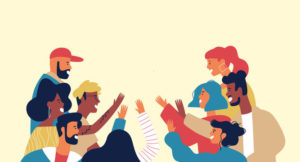Depression is a complex ailment and it is caused, as experts say, by multiple factors. They can vary from loss of a loved one, change of profession, a history of depression in the family as well as drug abuse and psychic factors. Most of all, depression makes the victim vulnerable to multiple social and biological factors.
This is because the victim is not able to cope with the symptoms on his own. Depressed people are plagued with dejection which they are not likely to share with anyone. This makes them feel lonely and left out. Increased vulnerability results from personal conflicts with family members or friends. Psychiatrists believe that depression is sometimes the result of genetic diseases such as Huntington’s Chorea or cystic fibrosis. Problems of adjustments, wrecked ambition, serious trauma or emotional factors also contribute to such symptoms. Scientists believe that in case of depressed people, the stress hormone cortisol is produced in excess. This renders them vulnerable to depression as nerve cells become endangered.

What is Depression? (https://www.webmd.com/depression/default.htm)
Depression may be treated from a variety of perspectives. Emotional problems which make depressed people vulnerable must be addressed. The cause of depression must be identified. Often, it becomes difficult to provide a total cure. Depression caused by the death of a loved one or a recent divorce, might not be amenable to a total cure but it can be minimized by adequate counseling and proper medication. Redressal of depression caused by undeniable factors like loss due to a shocking accident/incident or change in family situation has to be tackled both physically with medicines as well as with emotional reconstruction.
When one is depressed, it becomes immensely difficult to socialize with friends. Even getting out of bed becomes a challenge. So, the first requisite for depression is social support from friends, family members and well-wishers. It becomes necessary to reduce stress factors by developing new areas of social interaction and emotional rebuilding. A changed scenario of social activities in both professional and home environments does act like a panacea.
Depression may also be treated by improving one’s diet. Nutritional psychiatry recommends supplementing zinc deficiency and vitamin intake in depressed people. This can also be helped by cognitive behavioral therapy that may change the common patterns of negative thinking which is synonymous with cognitive distortions.
Any form of depression can be tackled by engaging oneself in household chores like arranging domestic items, doing a project or an assignment and getting up early as well as helping the family. Feeling happy is a result of participation in such simple activities as caring for your pets, gardening, going for a long drive, taking a warm bath and reading a good book. Watching a film will also act as purging your mind of unhealthy feelings.
It will do good to comfort another person suffering from depression as well as to discuss the relevant factors in a friendly spirit. Hence taking on responsibilities helps you to relocate and tide over anxiety. It is also imperative to get some humor in your life by engaging with positive people. Finally, you must sleep well to feel relaxed as good sleep habits can improve your mental state. To conclude you must give yourself credit when it is due.
As one of our esteemed Professors, Prof. Steffi has rightly stated, “You only feel depressed when you want to feel depressed!” suggesting that if it is not you who deal with it, no one else will do it for you.
Contributed by: Subhrajit Samanta
Featured Image by: Ananya Paul
Read About: Bipolar Disorder













